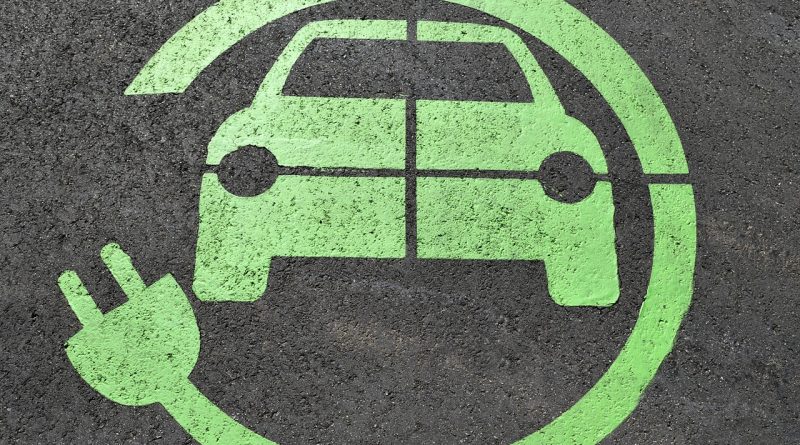Electric Vehicles Steps On Japan Roads
Sunday’s scoop of Japan’s local TV channel Asahi in new News program “News Frontline” is EV or Electric Vehicle. Japanese look more excited than the rest of the world. EV are not future as much as we thought of, today we can see them running on our roads so the big change is here. The total concept of automotive world will change and EV will more stand in the family of Households.
A small workshop producing cellular phone parts was seen testing an EV in the small town of Kyoto. Mr. Ogura heads 16 people and supplies small electric parts to household appliance makers. He has a passion for electric cars but why is he able to make his first 4-wheel Japanese Cars named “MEGURO”. He explains that it is much easier to build an electric vehcile as compared with conventional Gasoline engine driven automotives. Presently EV are making debut with compact cars required for small drives. But USA car maker is road testing a sports car with Japan’s help and will start production very soon. The major hurdle in producing an auto is engine which comprises of valves, there are 150bearings required in making one vehicle says Suzuki Kaicho, the head of NTN bearing maker. NTN is the largest bearing manufacturer of engine bearings and produce 70% of the world share in valve manufacturing. NTN has 1200 people working but Mr. Suzuki is looking for more staff specializing in electric and electronic engineering. NTN plans to produce motors in future because there are worries of less demand for gasoline engines in future. Japanese small businesses are family owned and if small workshops can produce EV then it certainly have negative impact on the gasoline engine spare part manufacturers. Mostly these will start to shift technology and be moved or be pushed out of Japan.
Advantages
1. Lighter in weight because of 30% lesser parts used in manufacturing when compared to Gasoline cars.
2. 7&half times cheaper in running cost, e.g; Compact cars with conventional gasoline engines cost about JPY7.5Â¥ to a Kilometer but EV runs on 1JPY per Km.
3. Zero emission means no pollution since Japan promises to cut pollution through harmful gases, to be reduced by 25% in next 5-years.
4. The monopoly shift from auto makers to the household appliances manufacturers is a shift towards new era.
As we see in science fiction movies and serials that the cars are flying discs seems to be nearer. The easy production cycle by the inclusion of electrics and electronics will hopefully achieve astounding advancements to the future of electric vehicles. Japans economists also beleives that in next 5 years there will be a shift in future of Japan with lesser demand in gasoline engine vehicles and more convenient places for Hyper Charging of EV batteries because of higher demands of EV.
Japan have more than 60 years history of auto making and this zero start is not an easy start for many brand makers. The description of auto technology in gasoline engine driven and electric vehicle is entirely different. During the interview with Carlos Gohn it is also learned that Nissan will be producing five hundred thousand batteries by next year and will try to become leader in re-chargeable battery producers. There is a tough war between the EV makers about the batteries and battery charge, as to how long it will take to full charge the battery.
Japan produces 50% small and compact vehicles where the first arrivals of EV is most welcome. Nissan Leaf is tagged with a price of JPY 2,990,000 under Japan Govt. support, the actual @price is JPY 3,760,000. Nissan is advertising Leaf to be equipped with the power equivalent to 3.0Ltr. gasoline engine and can be accelerated to 140KPH and can run 160Kms. on full charge battery.
Mitsubishi MIEV is slashed its price from last year to JPY 2,840,000 under Japan Govt. support, the actual price is JPY 3,980,000
One driver says ‘ I feel need for such a car because of smooth ride with a feeling of no harm done to the environment, and one said that he possibly be needing it within a year.
E-Zone produced by South Korea runs 70Kms. with full charge and the average speed of this tiny car is 50KPH. The motor is situated inside the trunk. It sells at a price tag of JPY1,410,000 under Japan Govt. support program. Moreover with a makers charge cable and holder you can plug it to your house hold plug of 100V and full charge in 8-hours.
China is a new player among automotive producing nations and stands world’s largest auto producing country for 2009. The top maker BYD is eagerly involved in sending EV to the waiting customers most probably before the inauguration of Shanghai convention.
BYD has recently announced its first EV E6 to be marketed from USA which will run for 330Kms. on full charge of battery.
Well 2010 can be marked as the year of Electric Vehicle. USA, China, Japan and Europe all will try to impress the audience and try to become No.1 to fill the gap and say goodbye to the conventional gasoline engines.
All are waiting for public reaction about Leaf and more than 3Million auto users of Japan who are driving small cars ‘KEI’ in Japan are more eager. Sooner the prices will come down to support commercial businesses.
Japan’s share in International market will probably remain same, because EV will not be easily accepted by weaker economy nations and the rich oil producing nations. Also to say, who knows that in near future Panasonic, Sony, Toshiba or Hitachi will also step into EV making. The immediate success is still dependent on the public reaction from HK, Taiwan, Korea and Japan because these countries have lack of space and congestion on roads in greater compared to USA or China.


